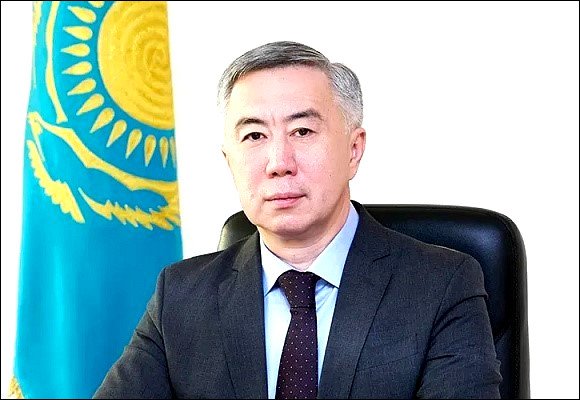In a significant reshuffle amid economic strains, Kazakh President Kassym-Jomart Tokayev has decisively replaced the country’s economy minister, signaling both urgency and adaptation as Kazakhstan grapples with the challenges of a depreciating currency. This cabinet shift, occurring against the backdrop of fluctuating international trade dynamics, comes just before the January inauguration of U.S. President-elect Donald Trump, whose administration has foreshadowed the possibility of new tariffs.
Replacing Nurlan Baibazarov, who was incumbent since February as deputy prime minister and economy minister, is Serik Zhumangarin—an adept figure, seasoned in roles such as deputy economy minister, trade minister, and the overseer of Kazakhstan’s Agency for Protection and Development of Competition. His experience does not end there; Zhumangarin retains his title as one of the deputy prime ministers, further solidifying his influence within the government.
In his newly minted role, Zhumangarin is charged with the imperative task of not just propelling economic growth but also navigating structural transformations while enhancing budget and tax frameworks. The Prime Minister’s office underscores that his ministry must strike a judicious balance between supporting business and formulating tariff regulations—this dual focus is deemed crucial for invigorating key sectors of the economy.
As global economic leaders brace for the unpredictability that Trump’s policies may unleash, a recent conversation between Tokayev and Trump highlighted a mutual willingness to foster collaboration in trade and investment, hinting at a pragmatic approach to likely challenges ahead.
Meanwhile, in a notable endorsement of Kazakhstan’s economic trajectory, Moody’s Investors Service has upgraded the nation’s long-term local and foreign currency issuer ratings to Baa1 from Baa2, attributing this elevation to significant institutional reforms and diversification efforts away from a hydrocarbon-heavy economy. However, the agency remains watchful, cautioning against potential geopolitical tensions and the repercussions of Western sanctions targeting Russia amidst ongoing conflict.
The International Monetary Fund has also weighed in, projecting a GDP growth rate of 3.9% for Kazakhstan in 2024, with optimistic forecasts indicating an uptick in 2025. The IMF commended the country’s stringent monetary policies and commitment to flexible exchange rates, which are pivotal in navigating the current turbulence.
Yet, despite these optimistic forecasts, Kazakhstan’s currency has continued to flounder under mounting pressure. The central bank recently disclosed that it had deployed over $1 billion in foreign exchange interventions since mid-November in a bid to stabilize the tumbling tenge. This currency has plummeted, crossing the troubling threshold of 500 tenge to one U.S. dollar as it hit unprecedented lows. Officials attribute this decline to a confluence of factors including global dollar appreciation, dwindling oil prices, and the depreciating Russian ruble.
Serik Zhumangarin, born in 1969 in Aktobe, Kazakhstan, is no stranger to regulatory frameworks, having previously engaged in competition and antitrust policies for the Eurasian Economic Commission. This body plays a pivotal role in facilitating economic integration among the former Soviet states—Kazakhstan, Kyrgyzstan, Russia, Armenia, and Belarus—aiming to bolster mutual prosperity against the backdrop of an interconnected global economy.

